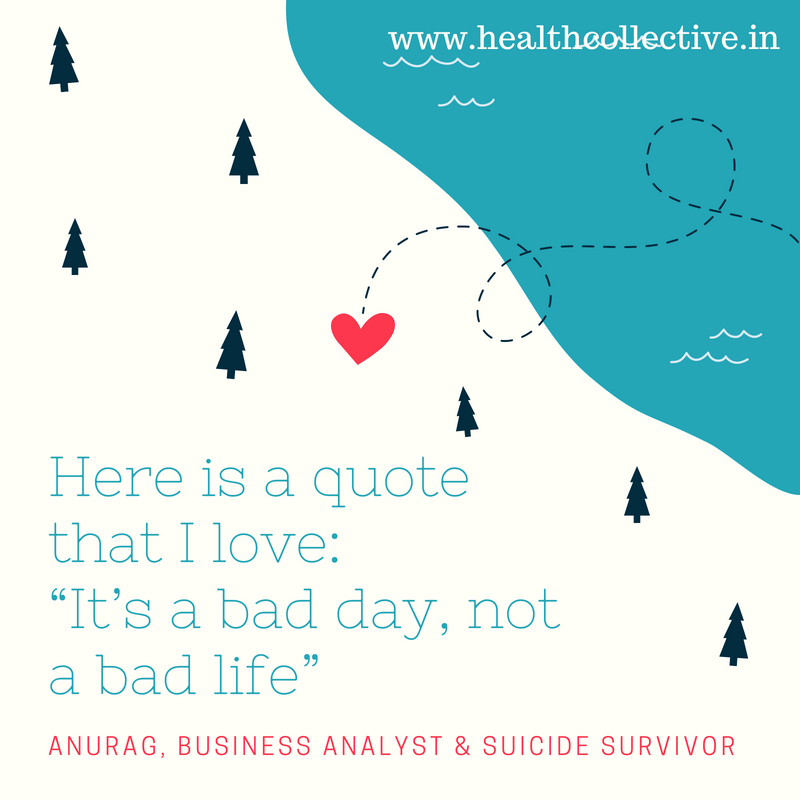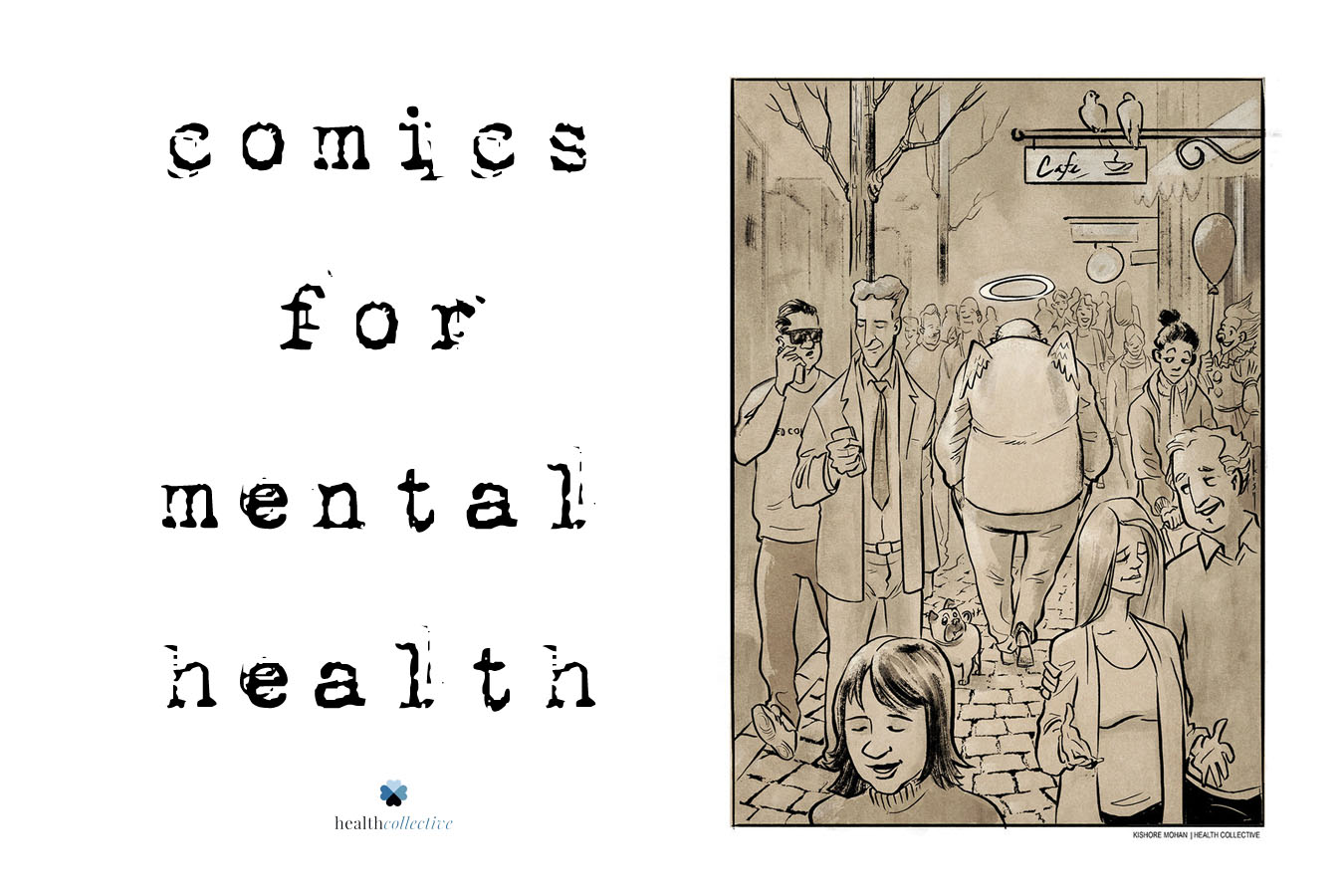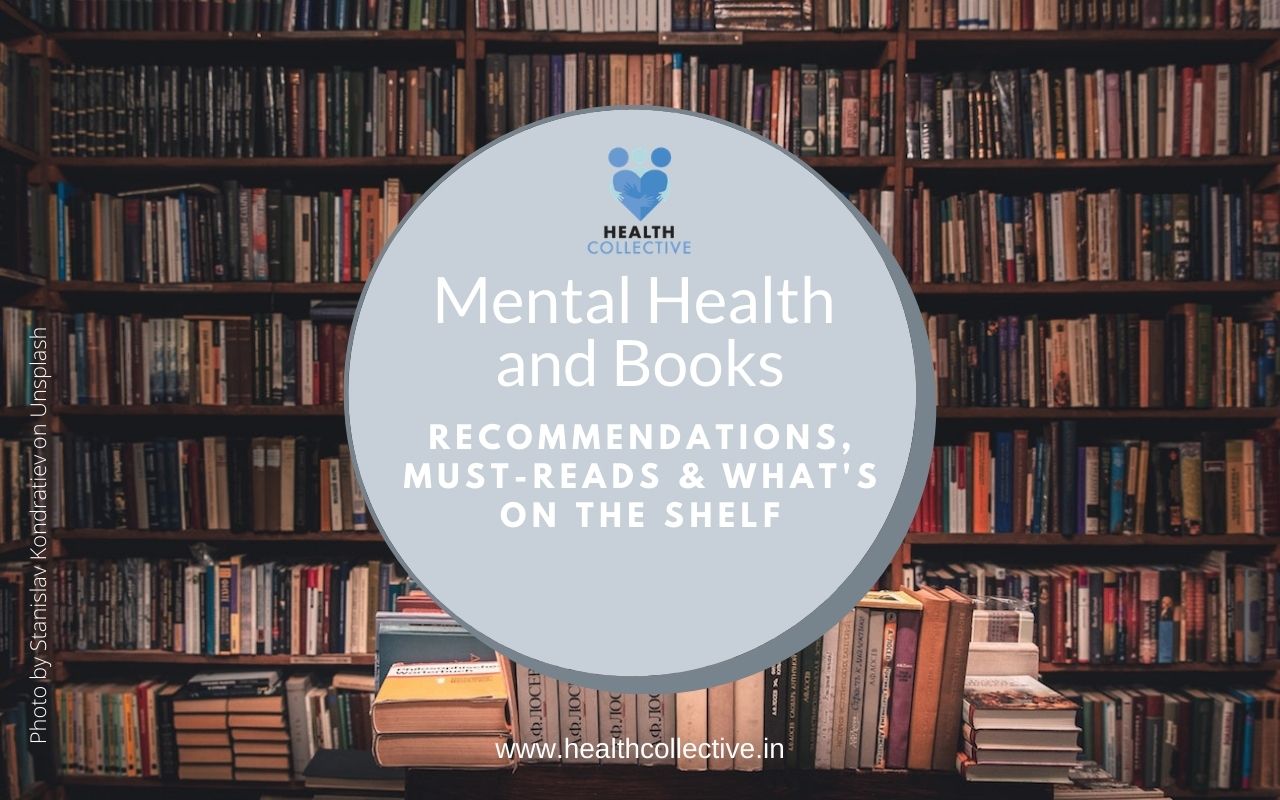Suicide Prevention Day: Creating the Space to Seek Help
By Kamna Chhibber
Speaking, talking and sharing are not always given space in society. Often we shy away from discussing difficult issues. We find it a challenge to share our true thoughts and feelings. Many feel that what goes on within them may not be acceptable to others around them and in society at large. A perception develops whereby we start dictating our communications to conform to certain set standards and norms.
The more we see that certain types of communication do not occur in our social fabric, the more we withdraw within our own self. The need to share gets associated with a feeling of weakness and a questioning of the strength of the self-system to handle and deal with problems. It continuously and in a vicious way impacts self-concepts, relationships and our adjustment to the environment in which we exist.
Breaking the norms
And yet, increasingly we are surrounded by situations where people are breaking the norm. This happens when collectively, we as a community and a society, come together to challenge existing belief systems and ways of doing things. Getting ourselves together is not an easy task but it is not impossible. Generating awareness and understanding of the need for the desired change is the first step in moving towards breaking existing norms. One norm that we most certainly need to break is that of silence that surrounds mental health and its vicissitudes. A move to break the shackles that bind people from disclosing and talking about what affects them, their moods, thinking, situations, experiences and mental health conditions is a must in society today.
Discourse around mental health challenges needs to become a norm instead of the silence that currently permeates it and this can start by encouraging people to talk, share and seek help when they need it.
ALSO READ: SUICIDE IS NOT THE ANSWER: A SURVIVOR’S STORY
Know when someone needs help
The same situation can have a different impact on individuals. Our standards for ourselves find no application as a determining factor as to who may or may not need help. The most important aspect which indicates that help is needed by an individual is their subjective level of distress on account of any situation.
Distress which continues to exist despite time and situation changing or support being available is an indicator of a situation which warrants seeking help. When an individual’s functionality is affected, their ways of doing things at their workplace, home and social spaces is impacted, it is a red flag that necessitates giving a deeper look to what is going on with the individual.
Verbalisations by an individual of finding it difficult to cope with situations or of an internal struggle that does not seem to abate, make it a must that one encourage the person to seek help for what they are struggling with.

Directing someone to required help
It is not easy to go up to someone and simply state ‘I think you need help so go meet an expert’. It can come across as harsh, presumptuous or derogatory to the individual. There are some things to be kept in mind to enable help seeking in an individual:
- Every individual has their own sensitivities and encouraging someone to seek help requires you to be cognizant of these so you can be empathetic in your approach to the person
- It helps to share your understanding of how difficult the current experiences may be for the individual. This creates a space for you to have a conversation before you can direct them to professional help
- Express your care and concern without being too dramatic or emotional in your discourse and narrative. Sticking to facts, specifically to your own observations, is most helpful in such a situation
- Share your availability to the individual and also possibility of your presence when they decide to make their first phone call to an expert or visit to an expert. It can be comforting for the person to know that there is support available for them
- Ensure you have your information in place with details of helplines or experts who the person can reach out to for help
- Be sure to mention that seeking help is not a sign of weakness or lack of strength and ability in the individual. It is like visiting a doctor for a physical ailment and no different. Busting these myths and ideas can be comforting for the person and can go a long way in ensuring that they do seek help at the earliest
- Most importantly, continue to stay connected even post the initial contact for seeking help by the individual. Your support is going to be irreplaceable even as experts work with the person
ALSO READ: CENTER THE MARGINS: A QUEER-AFFIRMATIVE THERAPY
It’s important to emphasise:
Help seeking is in no way a sign of a deficit. It takes courage to step outside, acknowledge that you have a problem, recognise that you may not be able to find a solution and speak to experts who are nevertheless strangers about all that goes on within you. There are various helplines that are available where you can speak about what is going on. A list of these is available here.
Please do reach out if you or a loved one feels like you need help.
Find the right expert for yourself and don’t hesitate even if you need to go through a few people before you feel comfortable in working with someone. There are certain questions you can answer for yourself to decide if your therapist/expert is right for you. You can read more on that here
ALSO READ: DEATH BY SUICIDE: ANSWERING SOME KEY QUESTIONS
Disclaimer: Material on The Health Collective cannot and does not claim to substitute for expert advice from a trained mental health professional.
Feature Image: Photo by Hillie Chan on Unsplash




